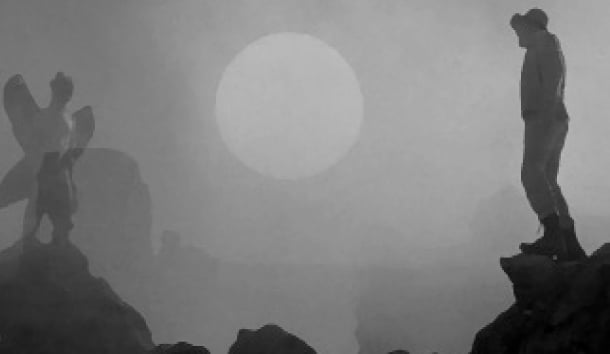I discovered the novels of Henry Rider Haggard as a boy living in London, where I came across them in a public library. His name was unknown to me, and I can no longer remember why I first pulled one of his books from the shelf and took it home. I must have devoured five or six of the many novels—and promptly forgot about Haggard until a month or so ago, when I came across Morton Cohen’s biography (Rider Haggard: His Life and Works) in a secondhand bookshop and read there that Haggard was a friend of Rudyard Kipling’s, and that Kipling—along with Robert Louis Stevenson, Graham Greene, C.S. Lewis, and Henry Miller—admired his works.
As a young man Haggard (born in Norfolk in 1856) served as an assistant to British officials in Natal and the Transvaal from 1875 to 1882, where he gained his familiarity with Africa. The novels are, I suppose, best described as imaginative romances, an aspect that must have appealed to Lewis, as the native background and adventure did to Kipling. So far I’ve reread She, King Solomon’s Mines, and am in the middle of Allan Quatermain, three of Haggard’s best-known works. While the African background is rendered more or less realistically, the stories are not concerned at all with probability.
Haggard’s Africa is a strange place: a barbarous continent in which relics of ancient classical civilization remain and remnants have been preserved against the barbarism that falls between the ancient world and the modern civilization, about which Rider seems to have been ambivalent. The storylines, full of what Henry James characterized as “pleasurable carnage,” are fast moving, though interrupted at intervals by long soliloquies, speeches, and prayers. Cohen argues that Haggard lacked the artistic temperament insofar as it demands the careful composition and attention to detail that Haggard ignored. Still, those very faults probably contribute to the surrealistic mysteriousness of his tales.
—Chilton Williamson, Jr.
Old Screwtape and his boss have been having a field day, and not just in faraway primitive places. Of course, we know we’re supposed to laugh at all of those backward types who believe that demons are real, the same way that NPR and the Episcopal hierarchy laugh at the African prelates who think that two dudes cannot pledge their troth. Hardy har.
Here in the Siècle des Lumières, science has intervened to explain away things that Christians used to attribute to the diabolical, demanding that our ability to discover some sort of organic cause necessarily rules out anything spiritual. Why, we might as well propose something even more loony, like the existence of souls that are intricately attached to bodies! The . . . humanity!
Into the fray comes the Rev. Dr. Robert Bennett, an expert in demonology whose research began in the Lutheran Church of Madagascar but followed him back to the United States. The Madagascar work he chronicled in I Am Not Afraid: Demon Possession and Spiritual Warfare (CPH, 2013), and now comes Afraid: Demon Possession and Spiritual Warfare in America (CPH, 2016), which I’m reading at the moment.
Exorcism isn’t magic: It is a theologically informed act of pastoral care. With a number of anecdotes (carefully altered for privacy’s sake) Dr. Bennett walks through the most common instances or occasions through which demonic possession and oppression occur in the United States, including popular pagan rites and occult dabblings that are more prevalent than even I’d realized. He details the theology of exorcism, from a confessional Lutheran perspective, as well as the importance of prayer, the sacraments, and traditional liturgy in the process. And he offers both historical examples from the Church catholic and modern ones that transcend the excesses of horror films and, instead of abject fear, elicit compassion and a much deeper awareness of things invisible that we so often ignore.
Screwtape told Wormwood that his S.O.P. in secularized society should be to fly under the radar, whispering in the client’s ear that demons do not exist. But sometimes America’s Wormwoods ignore that advice, and the banality of everyday evil turns to tangible horror. In either event, this book is worth reading, both as a warning and as a doxology, for the power of Christ not only compels them but triumphs in saving us.
—Aaron D. Wolf

Leave a Reply